Whether it’s a slip and fall in a grocery store, an accident at a friend’s house, or a dangerous situation at a public park, these incidents often lead to serious injuries that may require legal guidance from a premises liability lawyer. But what role do personal injury laws play in these types of claims? It is essential to understand how personal injury laws directly impact premises liability cases and what you need to know if you’ve been injured on someone else’s property.
Premises Liability Vs. Personal Injury
Premises liability and personal injury are closely related, but they are not the same. Premises liability is a specific area within personal injury law that focuses on accidents occurring on someone else’s property due to unsafe conditions. Personal injury is the broader category of law that covers any type of injury caused by negligence or intentional harm, which can include premises liability cases, car accidents, medical malpractice, and more.
The Role Of Personal Injury Laws In Premises Liability Cases
Personal injury laws serve as the foundation for most premises liability claims. These laws allow an injured person to seek compensation when their injuries were caused by someone else’s negligence. In a premises liability case, personal injury law helps define the elements of negligence that the injured party must prove to win their claim.
Personal injury laws establish that property owners have a duty of care to keep their property safe for visitors, including guests, customers, and employees. This duty varies depending on the type of visitor on the property (invitee, licensee, or trespasser), but property owners are generally required to keep the premises free from dangerous conditions and to warn others of potential hazards.
Furthermore, personal injury law requires the plaintiff (the injured person) to prove that the property owner’s negligence directly caused the injury. In a premises liability case, negligence can include a wide range of actions or inactions, such as failing to fix broken handrails, leaving debris on walkways, or not properly lighting a parking lot.
Additionally, personal injury laws govern the types of compensation an injured person can seek in a premises liability case. In personal injury law, damages are typically broken into two categories: economic and non-economic. Economic damages cover tangible losses such as medical bills, lost wages, and property damage, while non-economic damages cover things like pain and suffering, emotional distress, and loss of enjoyment of life.
Personal injury laws also incorporate the concept of comparative negligence, which can affect premises liability cases. This principle allows a court to determine the degree of fault for each party involved. In some cases, the injured person may be partially responsible for their accident. For instance, if someone trips over a broken sidewalk but wasn’t paying attention while walking, their actions might be considered partly negligent.
Why Understanding Personal Injury Law Is Important In Premises Liability Cases
For those who have been injured on someone else’s property, understanding how personal injury laws impact premises liability cases is vital. These laws guide how a case is filed, how damages are calculated, and how liability is assigned. Without a solid grasp of personal injury law, you may struggle to prove negligence or secure the compensation you deserve.
That’s where attorneys come in. Our colleagues at Kiefer & Kiefer underscore how critical retaining legal representation is when it comes to understanding how the law applies to your situation. From gathering evidence, assessing your claim, and working hard to hold property owners accountable for their negligence, the resources that come with an esteemed law firm are invaluable. Whether your case involves a slip and fall at a store or an injury caused by poorly maintained public property, it is essential to protect your rights under personal injury law.
Understanding The Distinction Between Personal Injury And Premises Liability
Personal injury laws are essential to premises liability cases, as they provide the framework for holding property owners responsible for unsafe conditions that lead to injuries. These laws allow injured individuals to seek compensation for their losses and make sure that negligence is addressed. If you’ve been injured due to unsafe conditions on someone else’s property, understanding how personal injury laws apply to your claim is vital. No two cases are the same. For help with your claim, speak with a premises liability attorney near you.

